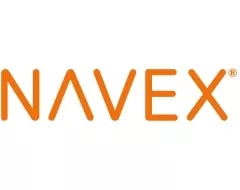ISO 37002 is the guideline for whistleblowing management systems currently being developed by the International Organization for Standardization (ISO). The international standard is scheduled for completion by the end of 2021. The need for a Standard dedicated to whistleblowing management systems is clear; to have a whistleblowing system is not enough for following up on your ethical codes. The success-factors for corporate whistleblowing lays in getting the trust of the persons that have something to say. The ISO standard is a very important step in agreeing on a common standard on how to build this trust. Important elements being data security, ensuring an anonymous dialogue with the whistleblower, and whistleblower protection for those who report openly. This article discusses the background, scope and added value of the new standard for whistleblowing management systems ISO 37002.
The new global standard on Whistleblowing Management Systems ISO 37002, what is it all about?
ISO 37002 will provide "guidelines for implementing, managing, evaluating, maintaining and improving a robust and effective management system within an organization for whistleblowing". The international standard will be non-sector specific and will be suitable for organisations of all sizes, from SMEs to multinationals. Based on the principles of trust, impartiality and protection, ISO 37002 is aimed to guide organisations in managing the full cycle of whistleblowing:
- Identification and reporting of concerns of wrongdoing
- Assessment of concerns of wrongdoing
- Means of addressing concerns of wrongdoing
- Closing of whistleblowing cases
The new ISO standard on whistleblowing management systems will provide practical guidance to organisations regarding a broad array of whistleblowing management aspects; ISO 37002 is a guidelines standard. It does not specify requirements but provides guidance on whistleblowing management systems and recommended practices. The purposes of the new standard are:
- Guiding organisations to put in place coherent whistleblowing frameworks that create a protective environment and to confidently report wrongdoing – addressing concerns swiftly and appropriately;
- Helping build trust between an organisation and its stakeholders, including staff;
- Responding to concerns about the reporting of and dealing with wrongdoing in view of the increasing number of cases reported publicly;
- Supporting good governance and transparency. The intention is that ISO 37002 will be used as a standalone document. Equally, the proposed standard could be used in conjunction with other standards, for example, organisational governance and anti-bribery; compliance and other management systems.
- Guiding organisations to foster a culture of transparency, in which people are confident to report concerns of wrongdoing.
Why has organisational whistleblowing grown to be a self-evident and important part of the compliance structure?
The decision to develop an international standard for whistleblowing management systems comes at a favourable moment. In recent years, news agencies covered a range of stories on exposures of wrongdoings, such as MeToo and Cambridge Analytica. The general public endorsed the people who blew the whistle. A growing number of organisations listened to the call for more transparency and recognised the important role of whistleblowers in preventing and detecting corporate wrongdoing. Whistleblowing has gainedmomentum. The WhistleB 2018 Customer Study findings reflect this more favourable view on whistleblowing:
- Customers receive significantly more
whistleblowing reports
On average, organisations received one message per 400 employees per year, a doubling since last year's survey. This development is likely fuelled by the changing attitude towards whistleblowers, and also the fact that more organisations are opening up their systems to external parties (see point 4 below.) - Reports provide valuable information,
but anonymity is a critical success factor
Customers reported that many whistleblower messages led to investigations and indicated that that whistleblower messages enable them to act against misconduct early. However, the option to report anonymously, along with the strictest data security, is essential; approximately half of the messages led to an anonymous dialogue. - Financial irregularities and
workplace-related abuse are most commonly reported
Nearly half of all reports received by respondents were about economic fraud and irregularities of some sort. However, workplace-related abuse issues have also risen during the last year. - External parties are more likely to
be invited to report
While employees remain the main source of whistleblowing messages, suppliers, customers and other parties are increasingly invited to report. We attribute this to organisations viewing whistleblowing more and more as a proactive part of their business ethics work - Online reporting dominates
Our customers receive 90% of their reports through the online channel. This is due to the pervasiveness of smart devices, the ease with which evidential materials can be attached to web-based reports and stricter requirements on the management of personal information.
Organisational whistleblowing – a global phenomenon
A significant step was taken by the European Commission in 2018 when it proposed a new law to strengthen whistleblower protection across the EU. Its reasoning is that scandals caused by a lack of transparency show that whistleblowers can play an important role in uncovering activities that damage the "public interest and the welfare of our citizens and society." The proposal includes an obligation for organisations to implement safe channels for internal reporting. Companies with more than 50 employees or with an annual turnover of over EUR 10 million will have to set up an internal procedure to handle whistleblower reports. All state and regional administrations and municipalities with over 10,000 inhabitants will also be covered by the new proposal.
Over the recent years, various European bodies called for the protection of whistleblowers. Examples are the Council of Europe´s Recommendation of the Committee of Ministers to member States on the protection of whistleblowers of 2014 and the European Parliament's Resolution on legitimate measures to protect whistleblowers acting in the public interest of 2017. These initiatives have influenced the legislators in a growing number of countries that put new or revised legislation in place aimed at protecting whistleblowers; examples are Australia's Treasury Laws Amendment (Enhancing Whistleblower Protections) Bill 2017, Italy's Law No. 179/2017 and France's Loi Sapin II.
Whistleblowing has been addressed by various organisations for many years. Already in the beginning of this century the Organisation for Economic Co-operation and Development OECD addressed the importance of improving ethical conduct, ever more focussing on whistleblower protection.
Also the Global Reporting Initiative (GRI) has since long been addressing organisational whistleblowing as part of GRI's global standards for sustainability reporting. Disclosure G4-58 (Disclosure on ethics and integrity), was superseded by the GRI Standards in October 2016 and is now Disclosure 102-17 (Mechanisms for advice and concerns about ethics) in the GRI 102: General Disclosures 2016 Standard. Providing wording on how organisations can provide means for stakeholders to seek advice about ethical and lawful behaviour, and organisational integrity, or to report concerns about these matters, Disclosure 102-17 states as follows:
The reporting organization shall report the following information:
A description of internal and external mechanisms for:
- seeking advice about ethical and lawful behavior, and organizational integrity;
- reporting concerns about unethical or unlawful behavior, and organizational integrity.
Incentivised by corruption scandals, branch organisations introduced or updated their own standards addressing whistleblowing; examples are the International Automotive Task Force's (IATF) new 16949:2016 standard, for the first time including ethics escalation (whistle-blower) policy in an automotive quality standard and the Australian Bankers' Association commissioned Review of Whistleblowing Protections by Australian Banks.
ISO 37002 standard for whistleblowing management systems – what will it include?
ISO 37002 will be structured as a High Level Structure (HLS). The HLS is a set of 10 clauses that all ISO management system standards are required to use in order to ensure consistency and greater integration between systems of different disciplines. The HLS approach involves precise drafting. For example, discussion about the wording of ISO 37002 is ongoing, as the guideline will include generic management system terms and definitions, along with discipline-specific terms
Organisations that have not adopted management system standards will be able to adopt ISO 37002 as a stand-alone guidance within their organisation. Organisations will be able to choose to extend the scope of the whistleblowing management system to include reporting from outside the organisation.
WG3 states that it intends to provide a framework for establishing a clear and robust organisational whistleblowing system. WG3 acknowledges that creating a protective environment where people can confidently report concerns is crucial to the effective preventing of and dealing with wrongdoing. ISO 37002 addresses the need for organisations to protect whistleblowers and other people who may be affected as a result of the reporting of wrongdoing. Retaliation is mentioned as a specific risk of whistleblowing. This approach provides an indication of WG3's understanding of the complex issue of establishing and managing an effective organisational whistleblowing infrastructure, not limiting itself to the employer's point of view, but also recognising the particular perspective of the whistleblower.
Why is organisational whistleblowing so important?
In 2017 the European Commission issued the report "Estimating the economic benefits of whistleblower protection in public procurement". The report states that there is a strong economic case for whistleblower protection. In all of the countries studied, the potential gains from recovering misused public funds was found to exceed the costs of setting up and maintaining such systems in the area of public procurement alone.
According to the Association of Certified Fraud Examiners (ACFE)'s 2018 Report to the Nations – Global Study on Occupational Fraud and Abuse, organisations lose an average of 5 per cent of their annual revenue to fraud each year. A secure whistleblowing system is the optimal solution for preventing wrongdoings; the same report states that fraud losses were 50% smaller at organisations with whistleblowing hotlines than those without a whistleblower hotline.
Whistleblowing is often seen as a risk for boards, committees, directors and the organisation's reputation. But with a sound whistleblowing infrastructure in place, whistleblowing brings an opportunity to better understand and manage culture, allowing to solve? irregularities internally, before they become uncontrollable externally.
Although there are a number of existing and useful reference points available, there is currently no single, internationally recognised standard on whistleblowing. Existing documentation is largely focused on legal obligations and what governments should be doing in terms of whistleblowing legislation. Whilst this is important, it is not suitable or practicable for enabling organisations to understand whistleblowing principles and how to implement policies and procedures effectively.
The ISO 37002 Whistleblowing Management Systems – Guidelines are likely to be the future global standard for organisational whistleblowing. Taking into account organisation's complex scope for manoeuvre provided by the current legal framework with regard to whistleblowing and related topics such as data protection, issuance of practical guidelines are a much welcomed development. Organisations can prepare for the future guidelines by mapping the whistleblowing structure that they currently have in place.
The ISO 37002 Whistleblowing Management Systems standard is scheduled for completion by the end of 2021.
WhistleB has been a long-time advocate of whistleblower protection. We strongly believe that when organisations are transparent and offer secure ways of reporting on wrongdoings without risks of retaliation, they are more successful in the long term.
The content of this article is intended to provide a general guide to the subject matter. Specialist advice should be sought about your specific circumstances.

